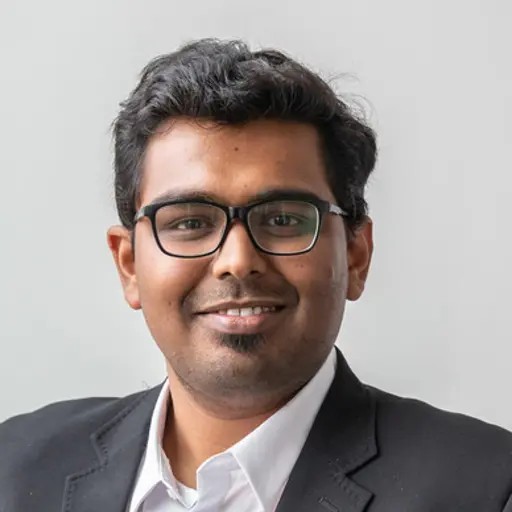
Shivesh Kumar at the Department of Mechanics and Maritime Sciences has been named one of Sweden’s Future Research Leaders by the Swedish Foundation for Strategic Research (SSF). He will receive a grant of SEK 15 million over a five-year period and will also take part in an extensive leadership development program as part of the initiative.
"Being selected by SSF reflects a strong vote of confidence in my vision, and I’m committed to living up to that trust by delivering impactful research and building a vibrant research environment," he says.
Congratulations, Shivesh! What was your initial reaction when you received the news of you getting this grant?
"I saw the email at the end of a long and intense workshop day, when I was feeling quite exhausted. But the moment I read the message from SSF, all the tiredness vanished. I felt a surge of joy and excitement, and I immediately began imagining how this opportunity could help me strengthen and grow my research group at Chalmers. It was a deeply rewarding moment."
What does it mean to you personally to be named a Future Research Leader?
"It’s a tremendous honor and a meaningful recognition of my work as an early-career researcher, especially as someone who recently moved to Sweden with new ideas and ambitions. Being selected by SSF reflects a strong vote of confidence in my vision, and I’m committed to living up to that trust by delivering impactful research and building a vibrant research environment."
Can you tell me a little about what your research is about, and which future societal challenges you hope to address?
"My research focuses on developing an AI-based holistic framework for the co-design of legged robots. The goal is to create a systematic framework for developing customized legged robots that makes them more agile, robust, and safe for various applications. This has wide-reaching implications for society—from disaster response and industrial inspection to elderly care and mobility assistance. A key innovation is the integration of human feedback and formal safety guarantees into the design process, which is essential for building public trust and ensuring reliable performance in real-world scenarios."
How do you view the role of a research leader – what do you want to build, and how do you approach leading a research group?
"I aim to build a world-class research group at Chalmers focused on legged robotics, with a strong emphasis on sensorimotor control and system design to enable next-generation athletic intelligence in robots. My leadership style is collaborative and goal-oriented, shaped by my previous experience of leading a team in Germany. I believe in fostering a culture of academic excellence, curiosity, and continuous learning—both for myself and for my team."
What do you hope this research grant will make possible – is there something you now dare to pursue that wasn’t feasible before?
"This grant gives me the freedom to pursue a high-risk, high-reward research direction over a five-year horizon - something that would be difficult to sustain with shorter-term funding. The structure of the SSF Future Research Leader program is particularly valuable, as it not only supports cutting-edge research but also invests in leadership development and strategic planning for long-term impact."
Is it anything you like to add?
"I’m truly grateful to SSF for this opportunity and to my colleagues and mentors who have supported me along the way. I’m excited to contribute to Sweden’s strong tradition of innovation in science and engineering, and I look forward to collaborating with both academic and industrial partners to push the boundaries of what legged robots can achieve. Also, I strongly believe that teaching and research must go hand in hand together. Hence, I want to better educate students about this exciting topic which will redefine our future. We have launched a new Tracks course called TRA455: Athletic Intelligence in Robotics which brings the latest and greatest insights in robotics to our students."
Here is a link to a short film about the course "Athletic Intelligence in Robotics".
- Assistant Professor, Dynamics, Mechanics and Maritime Sciences
